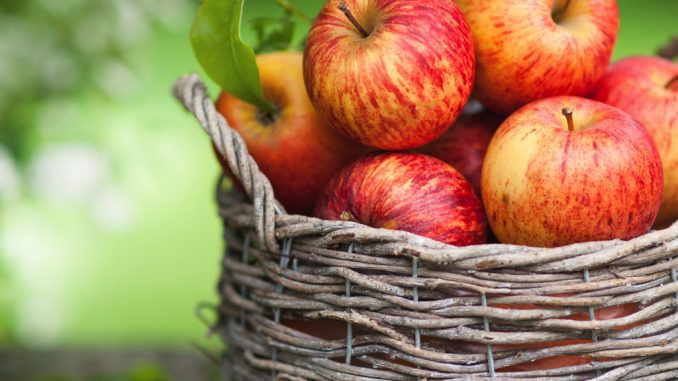
Is such a reminder at all necessary at Thanksgiving? The answer to this question is yes, because people today have largely forgotten how to give thanks for their daily bread. The reverent amazement at the mysterious processes of nature has been lost to them; nothing seems wondrous to them anymore. Everything is taken for granted.
For example, we thoughtlessly accept the fact that we can sit down at the table and eat our fill more than a thousand times within a year. And yet it is by no means a certainty for many people to always have enough to eat.
Often, we who live in the Western world can learn from the Christians of those countries where the Gospel is relatively unknown.
In the dining car of a train, a woman from Japan stood out. The carriage was full of guests. When the waiter had served this woman, the guests experienced something that astonished them to the utmost. She folded her hands and said grace for the meal. Some of the fellow passengers looked aside, ashamed and embarrassed.
A lack of gratitude is often a sign of thoughtlessness. Thanking cannot be separated from thinking. So today we also want to think about three miracles that the harvest field teaches us.
The entire harvest comes from death. Jesus said: “Unless a grain of wheat falls into the ground and dies, it remains alone; but if it dies, it produces much grain” (John 12:24).
Every year, we experience the million-fold miracle of seeds being placed in the earth, dying, rising, and becoming stalks that bear abundant fruit. But everything earthly is a parable for the spiritual. What does not die does not bear fruit.
Much comes from little. A seed can bear thirty-, sixty-, and a hundred-fold fruit. Jesus says in Matthew 13 that the mustard seed is the smallest of all seeds. Indeed, a hundred mustard seeds weigh only one gram. But each seed becomes a tree under whose branches the birds can nest.
This parable is about the spread of Jesus’ kingdom. The history of the revival movement is rich in examples of a person taking a “mustard seed” and sowing it in his field. Johannes Spiess in Germany prayed for five years for revival in his hometown. And then the breakthrough of God’s grace was so tremendous that within four years, four bars and entertainment venues had to close.
Who among us is willing to become a seed that goes the way of death to bear much fruit?
Like comes from like. If you put seed potatoes in the ground, you cannot possibly harvest oats. In terms of species, the harvest always corresponds to the sowing. The apostle Paul is right when he says: “Whatever a man sows, that he will also reap” (Galatians 6:7). If we have sown weeds in our lives, we can never reap wholesome fruit in eternity. So, it is quite impossible to live without God here on earth and then have fellowship with Him in the hereafter.
In view of these three facts, then, we find that the growth and maturation of the harvest is an enduring miracle of God.
A few years ago, I passed by a large piece of land that until then had lain completely fallow. When I recently saw it, suddenly a number of houses and even a church had been built on it. But when in a short time such a completely new part of the city comes into being, it is still far from being as wonderful as when a field of waving grain ripens to harvest without a sound. Even though in the great miracle work of nature the food for billions of people and animals grows unnoticed every year, we see in it the faithful hand of God our Father. Reflecting on these miracles of God should make us give thanks even more than before.
However, ingratitude can also have other causes. There are people who claim that gratitude is proof of dependence but that this dependence is a weakness of character. But are we not, in fact, totally dependent on the grace of the living God, who makes His sun rise on the evil and the good and sends rain on the just and the unjust?
Many people have forgotten how to give thanks because their selfishness and self-centeredness overgrow their whole being. The Württemberg reformer Brenz once said, “We should give thanks for what we don’t have because we don’t need it.” According toEphesians 5:20, we are to give thanks always for all things to God. In all things of our outer and inner being we want to recognize the gracious hand of our God.
Because all good things come to us through Jesus, we should give thanks in Jesus’ name. He is the mediator through whom God works everything. Without Him, we could not call God our Father.
In the great harvest field of the world, everything is ripening toward the great harvest day of eternity. What joy is already with the angels of God over one sinner who repents! But what will it be like when heaven will echo with the thanksgiving and harvest joy of countless multitudes of sinners saved from all nations! The redeemed will praise their Redeemer for this harvest blessing from eternity to eternity. Therefore, “Oh, give thanks to the Lord…for His mercy endures forever” (Psalm 118:1).
J. Weber




Be the first to comment